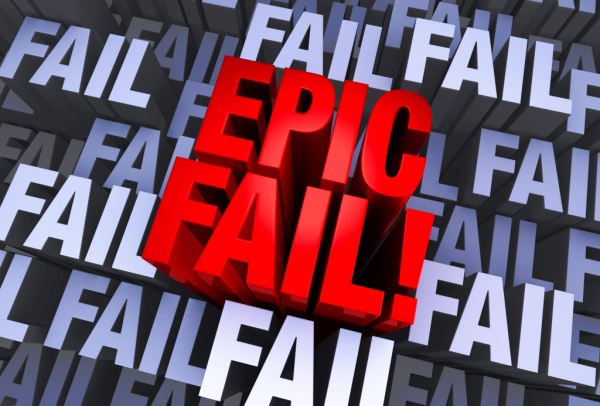The most unsuccessful decisions made in the history of the IT industry

An interesting question appeared on the Quora website - users were asked to share the most unfortunate, from their point of view, decisions made by companies related to the Internet and computers (most of them from Silicon Valley). And although we are all strong with our “back mind”, we can try to learn from the mistakes of others.
Myspace
MySpace was the fifth most visited site in the USA in 2005. Then the company had the opportunity to buy Facebook for $ 75 million, but the offer was rejected by MySpace founder Chris Devulf .
Since it was the most popular social network at the time, media mogul Rupert Murdoch decided to purchase it. He immediately began to pursue an aggressive policy of monetization, hung up the site with advertising, as a result of which the popularity of the service fell, and users switched to Facebook.
')
Hewlett packard
Hewlett Packard Company had the right to everything that Steve Wozniak invented, including the Apple I computer, the production of which Wozniak himself offered them to set up several times. However, they simply “let go” of the mad inventor with his “toy computer”.
Ibm
IBM had the rights to manufacture the Pentium chip, but got rid of them in order to manufacture more than 486 processors.
Apple
The company sold a license for the window interface for Microsoft Windows 1.0, but refused to sell the license for MacOS, which was offered to them by Bill Gates himself. MacOS could become a standard operating system for personal computers - but Apple management decided that their operating system would win all of them, so there’s no reason to license it.
Silicon Video Corporation
A company with the same name, later renamed Candescent Technologies, tried to make flat displays on FED technology (autoelectronic emission display). They attracted hundreds of millions of dollars in investment in their development “ThinCRT”, but the technology could not be brought to production. After 13 years of research, the company closed and sold its assets to Canon. There are still no FED-based displays.
Siliconon graphics
One of the coolest companies of the 90s quarreled with its founder, James Clark. He left the company, met Mark Andreessen, and together they created Netscape - a company that not only made the first popular browser, but also served as a catalyst for the Internet boom of the early 2000s, and earned about $ 2 billion.
Yahoo
In 1998, the founders of Google turned to Yahoo in search of investment in their new Internet search technology, but did not receive support. In 2000, they still saw the potential in Google, and began to use its search engine on their website, which contributed to the promotion of Google. In 2002, she could buy Google for $ 3 billion, but the deal fell through .
Netscape
The browser was for a long time the de facto standard, and each person who launched it first got to the company's home page. But the company did not use its potential, having almost 100% of the Internet audience - at first there were only uninteresting company news on the page, and then she gave it to the then small company Yahoo.
Intel
The company refused to deal with Apple for the production of processors for the iPhone, as it underestimated the volume of the proposed production and decided that it would not bring them profit . The head of the company explains: “We need to remember what it was before everyone saw the iPhone and no one knew what to expect from it. Apple needed a certain chip, they had a price that was not negotiable, and it was lower than our predicted cost. As a result, it turned out that the cost was incorrectly predicted, and the production volumes were a couple of orders of magnitude higher than expected. ”
Groupon
Andrew Mason refused the offer to sell his service to Google for $ 6 billion. Instead, he decided to go to the stock exchange, raising $ 700 million from the sale of shares. For some time the company was estimated at $ 12 billion, but then the company did not fulfill its promises to shareholders and its value quickly went down.
Atari
The company's founder, Nolan Bushnell, who was one of the first bosses of Steve Jobs, could own the third part of Apple, having invested only $ 50,000 at the beginning. The company's current value is estimated at more than $ 400 billion.
Xerox
In the research lab, Xerox PARC invented Ethernet, GUI, WYSIWYG editors, object-oriented programming, and laser printing — we still use all of this. But for some reason, apart from printers, copiers and cartridges, they did not use anything.
Excite
The company, which opened the web portal in 1995, rejected the proposal of the founders of Google to acquire their search system in 1999 for $ 1 million, and even dismissed its investment officer who had bargained with Brin and Page for $ 750,000.
Kodak
The first digital camera was created in the bowels of the company in 1975. But out of the fear that it would force out their film business, they did not deal with this technology until the mid-90s. When they realized their mistake, it was already too late .
Source: https://habr.com/ru/post/363451/
All Articles